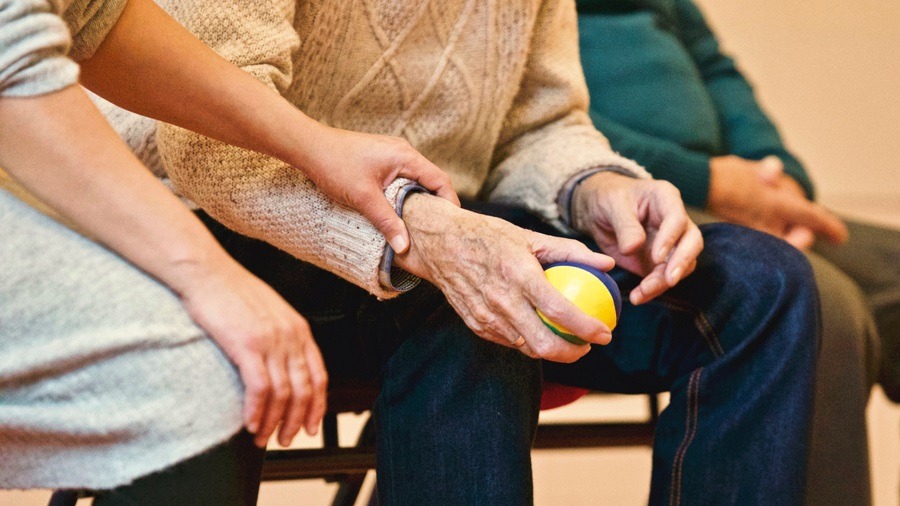Caring for Someone with Arthritis

Most of the over 100 types of arthritis are either degenerative (osteoarthritis) or inflammatory (rheumatoid). All conditions cause varying levels of pain, mobility issues and fatigue and can significantly impact the ability to do everyday tasks. While these are chronic, long-term disorders, there are ways to help your loved one reduce their symptoms and stay as comfortable as possible. As caregiver, try to:
Understand the Disease
Learn as much as you can about your loved one’s specific arthritis so you better understand their challenges and how to best help. Recognize that arthritis is unpredictable and often flares up and settles back down for no clear reason. This can make your loved one irritable, angry and depressed. Your patience and understanding will help them cope with these challenging emotions.
Communicate Effectively
Because the symptoms of arthritis vary over time, you’ll need to work together and stay flexible. Your loved one should feel comfortable to ask for extra help if they need it and turn your support down on good days. Respect their wishes and make their independence a priority.
Get Organized
Do a safety check around the home to identify potential hazards and recognize where safety equipment can help. Add railings in the bathroom, make everyday items more accessible and remove any loose rugs or cords. If your loved one is on medication, create a schedule with dosage and timing to ensure it’s taken correctly.
Go to Appointments
If possible, attend doctor visits together. Write down any questions you may come across between appointments. During visits, take notes and ask for clarification when needed to make the most of your time with the doctor. You can also report any changes to your loved one’s sleep, appetite or pain levels that aren’t always easy to identify.
Join In
For many types of arthritis, daily exercise can help reduce symptoms. Depending on the severity of your loved one’s arthritis, low impact activities like swimming, walking, yoga or cycling can be enormously beneficial. Even better, get active together and you can motivate each other, build your relationship and stay healthy as a team.
Encourage Good Choices
A well-balanced diet will help your loved one’s joints stay as mobile as possible and help maintain a healthy body weight. Some food choices have also been proven to reduce inflammation. Include lots of fruit, vegetables, omega-3s, fibre while limiting trans and saturated fats, salt and added sugar.
Stay Social
Encourage the person you are caring for to socialize and connect with others. This will help with pain management and improve mental health. Participate in hobbies they’ve always enjoyed and try new ones that are easier for people with mobility issues.
Focus on the Positive
Focus on abilities rather than what your loved one is struggling with. A positive outlook boosts self-confidence and can motivate activity. While it’s tempting to help as much as you can, this can actually decrease your love one’s abilities and self-esteem.
Reach Out
Help with daily tasks and personal care can be offered through home care providers like VHA. In many cases, people are more willing to let a professional offer additional support than family or friends.
If you are caring for a loved one with arthritis, one of the biggest challenges can be finding a balance between offering support and motivation, while encouraging independence. Make time for other loved ones, keep doing the activities and hobbies you enjoy and look to support groups to connect with other people who understand just how hard caring can be.
